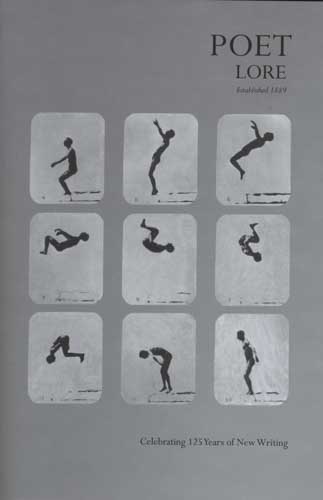Poet Lore – Spring/Summer 2014
This was the first issue of Poet Lore I have ever read, and it will not be the last! Well over 100 pages of outstanding poems, poetic history, interviews, and reviews made this more than just another issue to review; they turned it into an outright gripping read. While most of the works were brief (under one printed page), large-scale themes of loss and death are woven throughout. The editors did an outstanding job of finding beautiful poems that also highlighted positive moments in life through the pain. I am not lying when I tell you how a couple of pieces nearly brought tears to my eyes.
This was the first issue of Poet Lore I have ever read, and it will not be the last! Well over 100 pages of outstanding poems, poetic history, interviews, and reviews made this more than just another issue to review; they turned it into an outright gripping read. While most of the works were brief (under one printed page), large-scale themes of loss and death are woven throughout. The editors did an outstanding job of finding beautiful poems that also highlighted positive moments in life through the pain. I am not lying when I tell you how a couple of pieces nearly brought tears to my eyes.
“My God Once Gazed at Me” by Marc Hudson was one of those pieces. It is a chronological piece of a parent remembering a now gone disabled child. Being a physically disabled individual, I was able to firmly identify with the assistance Hudson describes having given. Being an empathetic individual, lines such as “living and dying among those blades / and in the blue shards of church glass” made me want to offer my condolences. Definitely worth reading in order to experience someone else’s life story.
Another life story that begs to be encountered, and is too often by children with aging parents, is described in “Demential Episode Featuring Birds” by Ginny Wiehardt. Placating a family member who has lost his grip on reality must be a difficult experience, especially when all the person wants to do is make a loved one happy. Past memories are brought up, making a reader realize that even in the tough times being described, enough happiness has existed to make these new efforts worthwhile. My favorite lines in the poem read, “staring at the ceiling and listening / for the daughter of her imagination.”
Speaking of childhood, I cannot think of a more universal experience than the one described by Dorothy Brooks in “Digging to China.” More painful experiences are encountered through the lens of personal history, and it left me feeling my inevitable future combined with my happy past. Life is a terminal disorder (not sure where I heard that, but it is definitely not original) and it is good to remember that.
However, the entire issue is not filled with doom and gloom. Jay Griswold’s “Anecdotes of the Dogfish” is a wonderful, almost surreal, poem that makes some connections that can only be concocted in the mind of a poet, while Patrick Ryan Frank’s “Stunt Man” and “Body Double” do a wonderful job of describing a couple of jobs that most people wouldn’t dare to take up; really fun stuff!
At the beginning of the issue is a section titled “World Poets In Translation.” Christopher Merrill introduces readers to Myanmar poet U Tin Moe, with some of his history as well as some of his politics, before presenting translations of his work. The twelve poems that follow were all written by Moe and then translated for an English reading audience. My personal favorite was “Worshipping the Buddha on Christmas Eve” for its wonderful description of the quiet surrounding a singular culturally significant night.
Near the end of the issue, a wonderful essay titled “Finding Muriel” by Dara Barnat talked about some of the hard work—and rewards—in the education for a doctorate in poetry. She is definitely proud to be Jewish, a woman, and a poet. I am left thinking of the connections I might find with poets I’ve never heard of were I to undertake such an adventure in education.
This issue of Poet Lore, its 62 poems (by 47 writers), its essay, its interview, its reviews, all of it, reminded me what it means to be a writer. In writing outstanding poetry, large issues are to be tackled through personal frames of reference. Now I want to write more of my own (the sign of a good read, to me) and maybe carve out my own piece of poetic history. Pick up a copy and do the same.
[www.writer.org/poetlore]





